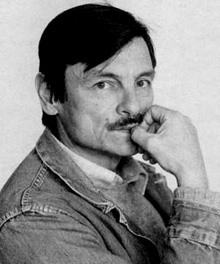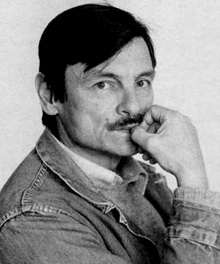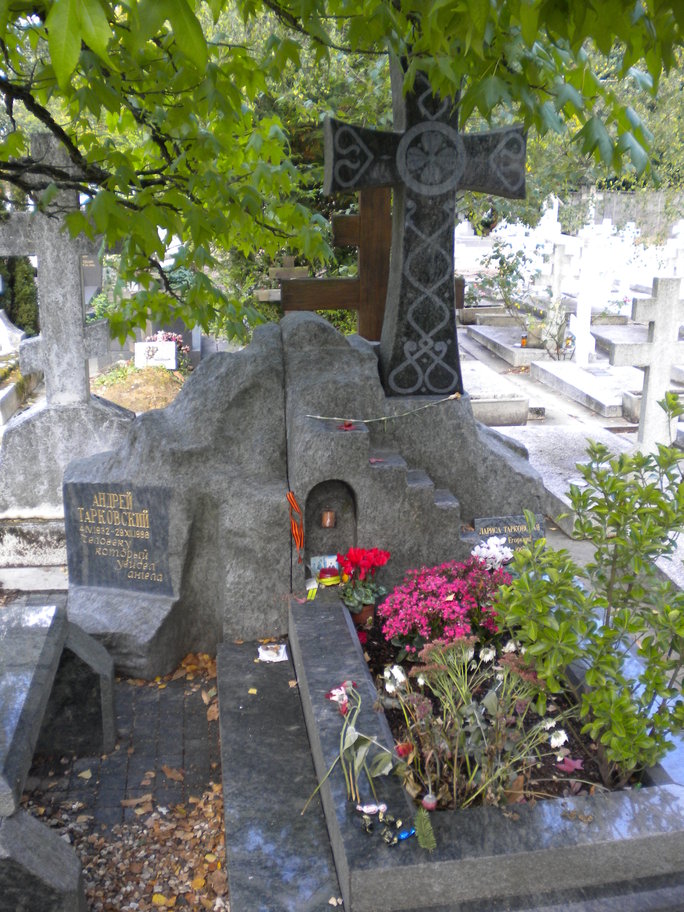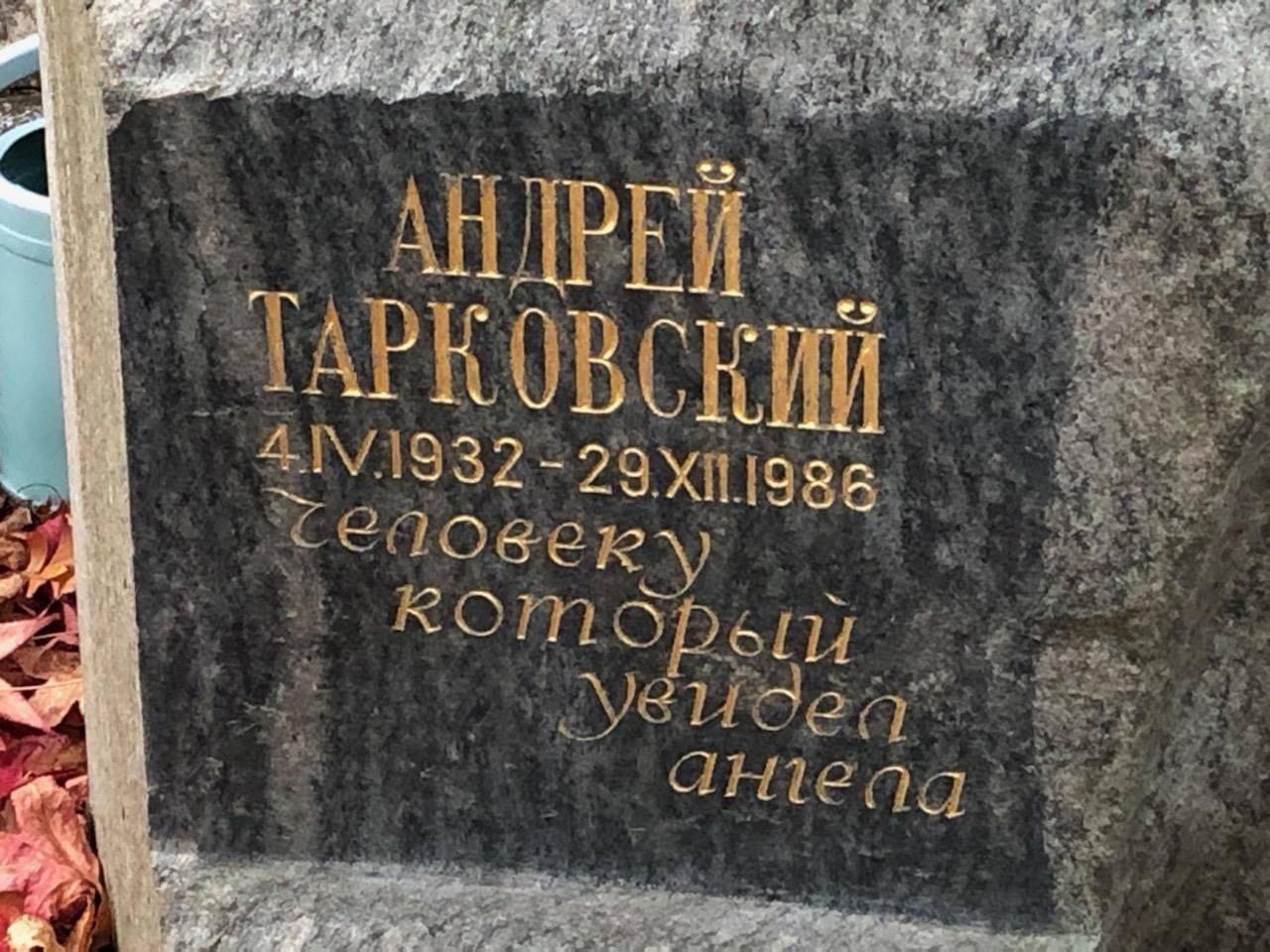Filmmaker. He was an award-winning Russian-born filmmaker who studied at the Oriental Institute in Moscow but abandoned these studies to study film. Born the son of a poet, he became a film director and screenwriter. In 1954, he applied to the State Institute of Cinematography (VGIK) and was admitted to the film-directing program. He co-wrote the script for "The Steamroller and the Violin," which was sold to Mosfilm. This became his graduation project, earning him his diploma in 1960 and first prize at the New York Student Film Festival in 1961. His first feature film was "Ivan's Childhood" in 1962, which was awarded the Golden Lion award at the Venice Film Festival in the year 1962. In 1965, he directed the film "Andrei Rublev," about the life of the fifteenth-century Russian icon painter, which received the FIPRESCI prize at the 1969 Cannes Film Festival. In 1972, he completed "Solaris," an adaptation of the novel by Stanisław Lem. The film was presented at the Cannes Film Festival, awarded the Grand Prix Spécial du Jury and the FIPRESCI prize, and was nominated for the Palme d'Or. The last film he completed in the Soviet Union was "Stalker," which was completed in 1979 and was awarded the Prize of the Ecumenical Jury at the Cannes Film Festival. He completed the film "Nostalghia" in 1983, which received the FIPRESCI prize and the Prize of the Ecumenical Jury at the Cannes Film Festival. He also shared a special prize called Grand Prix du cinéma de creation with Robert Bresson. In the same year, he staged the opera "Boris Godunov" at the Royal Opera House in London. He spent most of 1984 preparing the film "The Sacrifice," which was presented at the Cannes Film Festival and received the Grand Prix Spécial du Jury, the FIPRESCI prize, and the Prize of the Ecumenical Jury. He was recognized in the Soviet Union in the Autumn of 1986, shortly before his death, by a retrospective of his films in Moscow. After his death, an entire issue of the film magazine "Iskusstvo Kino" was devoted to him. He was awarded the Lenin Prize in 1990, one of the highest state honors in the Soviet Union. In 1989, the Andrei Tarkovsky Memorial Prize was established, with its first recipient being the Russian animator Yuriy Norshteyn. He died from the complications of cancer. Among his five publications, he published his textbook "Sculpting in Time" in 1985. His diary was published posthumously in English in 1991. There is a full standing statue of Andrei Tarkovsky at the entrance of Gerasimov Institute of Cinematography. A Russian postage stamp was issued with his image in 2007. He was buried in the Russian Cemetery in Sainte-Genevieve-des-Bois in France with later his wife, but there is a marker for him in the Perdelkino Cemetery in Moscow, which has his birth year as 1932.
Filmmaker. He was an award-winning Russian-born filmmaker who studied at the Oriental Institute in Moscow but abandoned these studies to study film. Born the son of a poet, he became a film director and screenwriter. In 1954, he applied to the State Institute of Cinematography (VGIK) and was admitted to the film-directing program. He co-wrote the script for "The Steamroller and the Violin," which was sold to Mosfilm. This became his graduation project, earning him his diploma in 1960 and first prize at the New York Student Film Festival in 1961. His first feature film was "Ivan's Childhood" in 1962, which was awarded the Golden Lion award at the Venice Film Festival in the year 1962. In 1965, he directed the film "Andrei Rublev," about the life of the fifteenth-century Russian icon painter, which received the FIPRESCI prize at the 1969 Cannes Film Festival. In 1972, he completed "Solaris," an adaptation of the novel by Stanisław Lem. The film was presented at the Cannes Film Festival, awarded the Grand Prix Spécial du Jury and the FIPRESCI prize, and was nominated for the Palme d'Or. The last film he completed in the Soviet Union was "Stalker," which was completed in 1979 and was awarded the Prize of the Ecumenical Jury at the Cannes Film Festival. He completed the film "Nostalghia" in 1983, which received the FIPRESCI prize and the Prize of the Ecumenical Jury at the Cannes Film Festival. He also shared a special prize called Grand Prix du cinéma de creation with Robert Bresson. In the same year, he staged the opera "Boris Godunov" at the Royal Opera House in London. He spent most of 1984 preparing the film "The Sacrifice," which was presented at the Cannes Film Festival and received the Grand Prix Spécial du Jury, the FIPRESCI prize, and the Prize of the Ecumenical Jury. He was recognized in the Soviet Union in the Autumn of 1986, shortly before his death, by a retrospective of his films in Moscow. After his death, an entire issue of the film magazine "Iskusstvo Kino" was devoted to him. He was awarded the Lenin Prize in 1990, one of the highest state honors in the Soviet Union. In 1989, the Andrei Tarkovsky Memorial Prize was established, with its first recipient being the Russian animator Yuriy Norshteyn. He died from the complications of cancer. Among his five publications, he published his textbook "Sculpting in Time" in 1985. His diary was published posthumously in English in 1991. There is a full standing statue of Andrei Tarkovsky at the entrance of Gerasimov Institute of Cinematography. A Russian postage stamp was issued with his image in 2007. He was buried in the Russian Cemetery in Sainte-Genevieve-des-Bois in France with later his wife, but there is a marker for him in the Perdelkino Cemetery in Moscow, which has his birth year as 1932.
Bio by: Pete Mohney
Inscription
To the man who saw the Angel
Family Members
Advertisement
See more Tarkovsky memorials in:
Records on Ancestry
Sponsored by Ancestry
Advertisement







